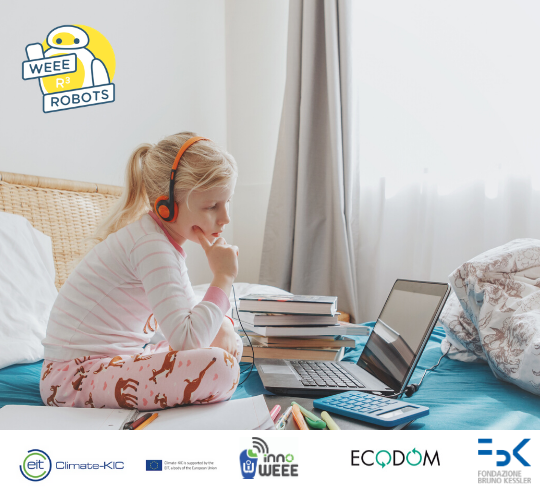The COVID-19 pandemic has affected educational systems worldwide, leading to the near-total closures of schools and the massive adoption of distance education. These events had an impact not only in the way education is delivered but also on the school’s projects.
To maintain a continuous thread of communication with the primary schools in the Province of Trento that would have experimented the Trentino pilot in the months of March-May 2020, the Bruno Kessler Foundation and Ecodom, partners of the InnoWEEE project, promoted online lessons at the primary school in Volano (TN) during the month of May, explaining the correct management of electrical and electronic equipment once they are no longer used.
Ecodom taught a one-hour lecture for each class using the support of slides and interactive quizzes and explaining the meaning of WEEE (waste electrical and electronic equipment) and EEE (electrical and electronic equipment), where WEEE has to be disposed, and what happens once they arrive at disposal centers. At the end of the virtual lesson, FBK presented a short video to explain the activities that children will do when they will be back in school and the WEEE R robots campaign will take place.
The students followed the lessons with enthusiasm, answering the quizzes and showing interest in understanding how to properly dispose their WEEE.
These meetings were a great way not only to keep the children’s interest alive in the WEEE R robots project, which will resume next school year at their school. But not only that. Children understood the importance of RECYCLING, REUSE and REPAIR electrical and electronic equipment that no longer works or that is still working but no longer used.
